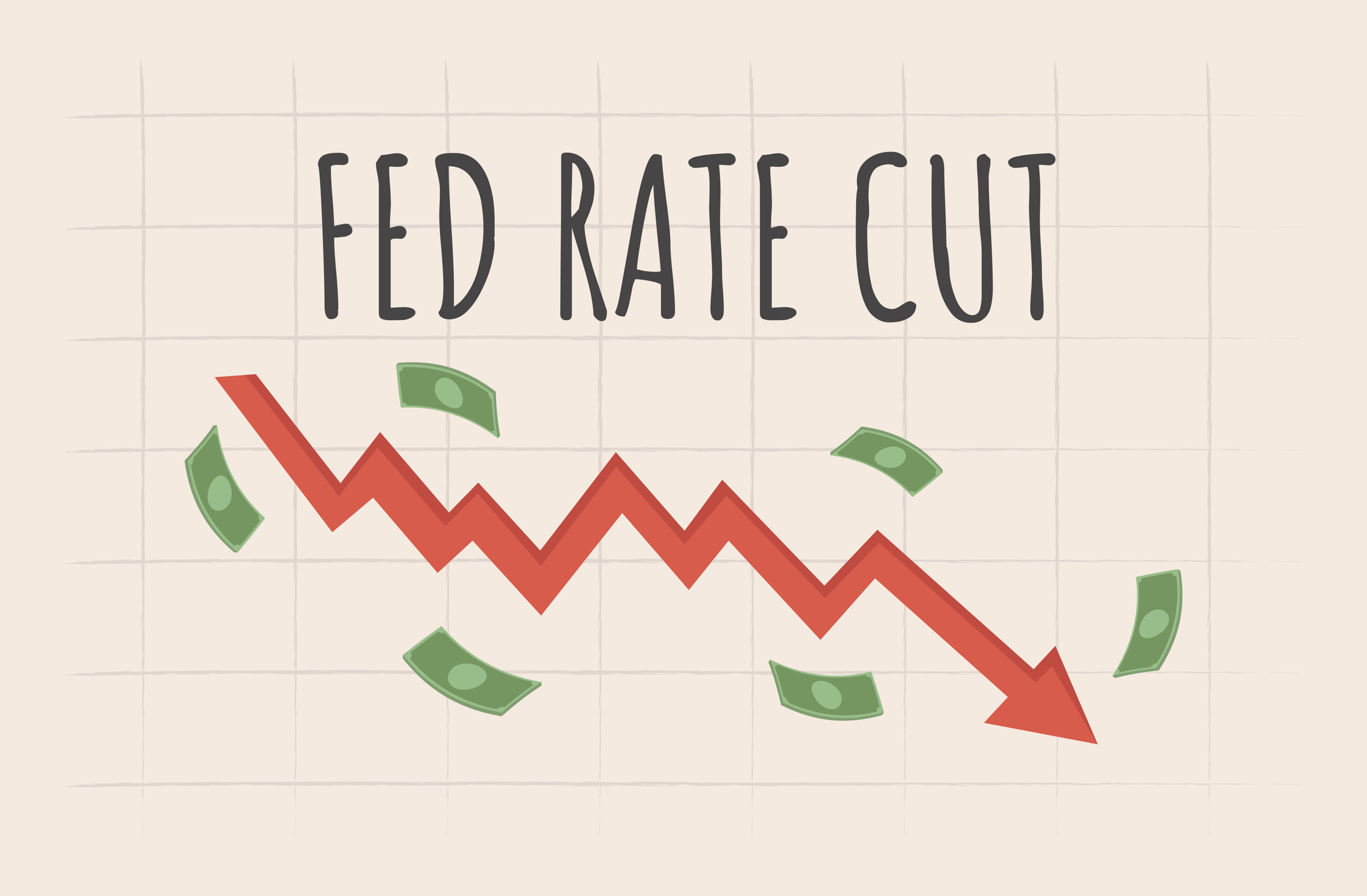The Phone Giants Still Rule
Despite the moaning over high share prices, AT&T and Verizon are terrific companies for investors.

Profit and prosper with the best of Kiplinger's advice on investing, taxes, retirement, personal finance and much more. Delivered daily. Enter your email in the box and click Sign Me Up.
You are now subscribed
Your newsletter sign-up was successful
Want to add more newsletters?

Delivered daily
Kiplinger Today
Profit and prosper with the best of Kiplinger's advice on investing, taxes, retirement, personal finance and much more delivered daily. Smart money moves start here.

Sent five days a week
Kiplinger A Step Ahead
Get practical help to make better financial decisions in your everyday life, from spending to savings on top deals.

Delivered daily
Kiplinger Closing Bell
Get today's biggest financial and investing headlines delivered to your inbox every day the U.S. stock market is open.

Sent twice a week
Kiplinger Adviser Intel
Financial pros across the country share best practices and fresh tactics to preserve and grow your wealth.

Delivered weekly
Kiplinger Tax Tips
Trim your federal and state tax bills with practical tax-planning and tax-cutting strategies.

Sent twice a week
Kiplinger Retirement Tips
Your twice-a-week guide to planning and enjoying a financially secure and richly rewarding retirement

Sent bimonthly.
Kiplinger Adviser Angle
Insights for advisers, wealth managers and other financial professionals.

Sent twice a week
Kiplinger Investing Weekly
Your twice-a-week roundup of promising stocks, funds, companies and industries you should consider, ones you should avoid, and why.

Sent weekly for six weeks
Kiplinger Invest for Retirement
Your step-by-step six-part series on how to invest for retirement, from devising a successful strategy to exactly which investments to choose.
Too bad there isn’t a clever portmanteau word to meld the names of the nation’s two biggest phone companies. Attizon or Veratt doesn’t roll off the tongue or please the eye the way Wintel (of PC fame) does. As far as investors are concerned, though, AT&T (symbol T) and Verizon Communications (VZ) are joined at the hip. In most respects, they are more similar than different. Both get tons of complaints about service, but they’ve produced heroic results for their shareholders.
Lately, though, some analysts have been carping that the stocks have gotten too pricey because of frenzied buying by income-starved investors. Most brokerages rate the pair some version of “neutral.” S&P Capital IQ recently had the audacity to slap a “strong sell” on Verizon, primarily due to valuation. S&P says to hold AT&T.
My View
Ignore the moaning over high share prices. Quality doesn’t come cheap, and AT&T and Verizon are terrific companies that are well situated to cash in on the explosive growth of wireless communications. You can buy now and bank on solid long-term returns. If you’ve been a shareholder for ages, perhaps even since the breakup of the Bell System in 1984, don’t hang up and stick yourself with a needless tax bill.
From just $107.88 $24.99 for Kiplinger Personal Finance
Become a smarter, better informed investor. Subscribe from just $107.88 $24.99, plus get up to 4 Special Issues

Sign up for Kiplinger’s Free Newsletters
Profit and prosper with the best of expert advice on investing, taxes, retirement, personal finance and more - straight to your e-mail.
Profit and prosper with the best of expert advice - straight to your e-mail.
True, you might not make much for a while. Both stocks are near their 52-week highs. AT&T, at $38, sells for 15 times estimated 2012 earnings, and Verizon, at $44, trades for 16 times earnings (prices are through August 3). The overall market’s price-earnings ratio is 13, so it shouldn’t be a shock if the stocks sit still for the rest of 2012, unless we get an all-hands year-end rally. Meanwhile, you’re paid well to wait: AT&T yields 4.7%, and Verizon yields 4.6%—better than the typical property-owning real estate trust, a rival for the affection of income seekers.
But there’s more to Big Telephone than big dividends. If Verizon and AT&T are not immune to cutthroat competition and disruptive technological change, I don’t know what is. They have brute marketing and financial force, technical know-how, the power to raise prices, and a limitless future. And they are overwhelmingly domestic enterprises, so problems in Europe and other places have little impact on their bottom lines. “The two are Darwinian victors and cannot be stopped,” says Steven Osinski, who has worked in the wireless industry since the 1980s and teaches business at San Diego State University. Competitors such as Sprint and T-Mobile, which AT&T unsuccessfully tried to buy last year, are weak and getting weaker.
A few years ago, some analysts thought AT&T had an advantage because it had exclusive rights to Apple’s iPhone. But now AT&T and Verizon both sell iPhones, as well as other devices. In other areas, the two are also as one. In June, Verizon Wireless overhauled its pricing so that you can pay one bill for all the services you access on multiple devices (Verizon Communications owns 55% of Verizon Wireless; Vodafone owns the rest). AT&T quickly announced a similar deal. Time will tell if consumers benefit, but both carriers will profit because the plans are designed to bolster data usage, which is potentially more lucrative than voice (see Smart Ways to Save on Smart-Phone Plans).
Bears think AT&T and Verizon shares will go the way of Intel and Microsoft and stagnate for a decade, maybe longer. They see the phone stocks once again trading at 10 times earnings or less. I’m not buying that. A single-digit P/E may have been appropriate for a slow-growing provider of landline phone service. But with each passing year, landline becomes a less significant part of the phone giants’ business. In fact, the slow death of the traditional voice business helps them because it saves on service and construction costs. AT&T and Verizon aren’t what they were a couple of years ago, let alone what they were in the last century. The pessimism toward their stocks is unjustified.
Kiplinger's Investing for Income will help you maximize your cash yield under any economic conditions. Subscribe now!
Profit and prosper with the best of Kiplinger's advice on investing, taxes, retirement, personal finance and much more. Delivered daily. Enter your email in the box and click Sign Me Up.

Kosnett is the editor of Kiplinger Investing for Income and writes the "Cash in Hand" column for Kiplinger Personal Finance. He is an income-investing expert who covers bonds, real estate investment trusts, oil and gas income deals, dividend stocks and anything else that pays interest and dividends. He joined Kiplinger in 1981 after six years in newspapers, including the Baltimore Sun. He is a 1976 journalism graduate from the Medill School at Northwestern University and completed an executive program at the Carnegie-Mellon University business school in 1978.
-
 Betting on Super Bowl 2026? New IRS Tax Changes Could Cost You
Betting on Super Bowl 2026? New IRS Tax Changes Could Cost YouTaxable Income When Super Bowl LX hype fades, some fans may be surprised to learn that sports betting tax rules have shifted.
-
 How Much It Costs to Host a Super Bowl Party in 2026
How Much It Costs to Host a Super Bowl Party in 2026Hosting a Super Bowl party in 2026 could cost you. Here's a breakdown of food, drink and entertainment costs — plus ways to save.
-
 3 Reasons to Use a 5-Year CD As You Approach Retirement
3 Reasons to Use a 5-Year CD As You Approach RetirementA five-year CD can help you reach other milestones as you approach retirement.
-
 The Most Tax-Friendly States for Investing in 2025 (Hint: There Are Two)
The Most Tax-Friendly States for Investing in 2025 (Hint: There Are Two)State Taxes Living in one of these places could lower your 2025 investment taxes — especially if you invest in real estate.
-
 The Final Countdown for Retirees with Investment Income
The Final Countdown for Retirees with Investment IncomeRetirement Tax Don’t assume Social Security withholding is enough. Some retirement income may require a quarterly estimated tax payment by the September 15 deadline.
-
 What Tariffs Mean for Your Sector Exposure
What Tariffs Mean for Your Sector ExposureNew, higher and changing tariffs will ripple through the economy and into share prices for many quarters to come.
-
 Stock Market Today: Stocks End Mixed Ahead of Powell
Stock Market Today: Stocks End Mixed Ahead of PowellPolitical upheaval in South Korea kept investors on their toes Tuesday.
-

 Stock Market Today: Stocks Drop, Oil Spikes After Iran Attacks Israel
Stock Market Today: Stocks Drop, Oil Spikes After Iran Attacks IsraelA massive port strike and dismal economic data also weighed on the main indexes Tuesday.
-

 Stock Market Today: Stocks Gain After Powell Talks Rate Cuts
Stock Market Today: Stocks Gain After Powell Talks Rate CutsA late-day burst of buying power helped the main indexes close higher for the day, month and quarter.
-
 Best Stocks to Buy for Fed Rate Cuts
Best Stocks to Buy for Fed Rate CutsThe Federal Reserve cut rates again at its December meeting, and lower borrowing costs could boost these large-cap stocks.
-
 Stock Market Today: Stocks End Mixed To Start Q2
Stock Market Today: Stocks End Mixed To Start Q2Strong readings on the manufacturing data lowered expectations for a June rate cut and kept investors on edge.